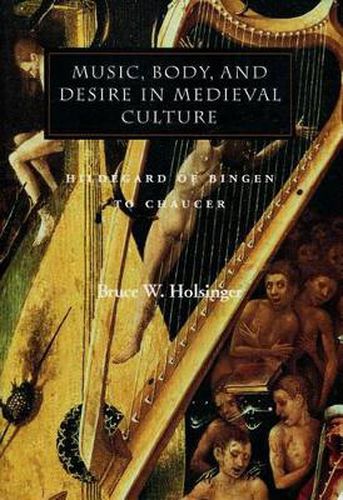Readings Newsletter
Become a Readings Member to make your shopping experience even easier.
Sign in or sign up for free!
You’re not far away from qualifying for FREE standard shipping within Australia
You’ve qualified for FREE standard shipping within Australia
The cart is loading…






Ranging chronologically from the twelfth to the fifteenth centuries and thematically from Latin to vernacular literary modes, this book challenges standard assumptions about the musical cultures and philosophies of the European Middle Ages. Engaging a wide range of premodern texts and contexts, from the musicality of sodomy in twelfth-century polyphony to Chaucer s representation of pedagogical violence in the Prioress s Tale, from early Christian writings on the music of the body to the plainchant and poetry of Hildegard of Bingen, the author argues that medieval music was quintessentially a practice of the flesh. The book reveals a sonorous landscape of flesh and bone, pleasure and pain, a medieval world in which erotic desire, sexual practice, torture, flagellation, and even death itself resonated with musical significance and meaning. In its insistence on music as an integral part of the material cultures of the Middle Ages, the book presents a revisionist account of an important aspect of premodern European civilization that will be of compelling interest to historians of literature, music, religion, and sexuality, as well as scholars of cultural, gender, and queer studies.
$9.00 standard shipping within Australia
FREE standard shipping within Australia for orders over $100.00
Express & International shipping calculated at checkout
Ranging chronologically from the twelfth to the fifteenth centuries and thematically from Latin to vernacular literary modes, this book challenges standard assumptions about the musical cultures and philosophies of the European Middle Ages. Engaging a wide range of premodern texts and contexts, from the musicality of sodomy in twelfth-century polyphony to Chaucer s representation of pedagogical violence in the Prioress s Tale, from early Christian writings on the music of the body to the plainchant and poetry of Hildegard of Bingen, the author argues that medieval music was quintessentially a practice of the flesh. The book reveals a sonorous landscape of flesh and bone, pleasure and pain, a medieval world in which erotic desire, sexual practice, torture, flagellation, and even death itself resonated with musical significance and meaning. In its insistence on music as an integral part of the material cultures of the Middle Ages, the book presents a revisionist account of an important aspect of premodern European civilization that will be of compelling interest to historians of literature, music, religion, and sexuality, as well as scholars of cultural, gender, and queer studies.